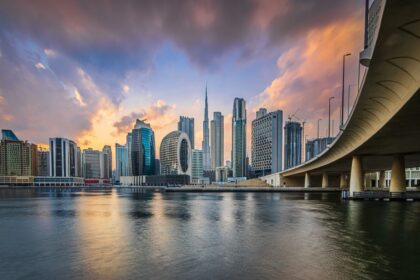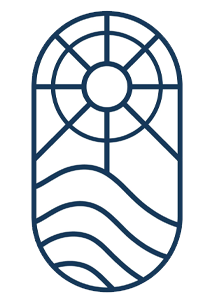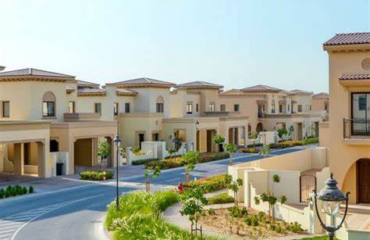
Owning property in Dubai means more than just paying the sale price. In 2025, both residents and investors are paying closer attention to the additional costs that come with homeownership, especially service charges and government fees.
Recent reports suggest that Dubai property service charges may rise by up to 10% this year, particularly in buildings with high-maintenance amenities. These charges can impact your long-term returns, whether you are an end user or investor.
You will also need to factor in various administrative fees, including DLD fees Dubai buyers are required to pay during the property transfer process. These costs vary depending on the property type, transaction value, and payment structure.
This guide breaks down everything you need to know, from service charge types to how fees are calculated. You will also get practical advice on how to plan for these expenses, helping you make more informed property decisions in 2025.
What are Dubai property service charges?
Dubai property service charges are annual fees paid by homeowners to cover the upkeep of shared areas and communal services. These charges are mandatory for all types of freehold properties, including apartments, villas, and townhouses within managed communities.
You are not just paying to own your unit. You are contributing to the overall condition, safety, and liveability of the building or neighbourhood you are part of.
These fees typically go toward:
- Cleaning and maintenance of lobbies, hallways and shared facilities
- Landscaping and gardening of communal outdoor areas
- Security services, including guards and CCTV systems
- Garbage collection and waste disposal
- Utility bills for shared services like lighting, water tanks and elevators
- Insurance and pest control for communal zones
- Contributions to a reserve fund used for major repairs and upgrades
The DLD service charge index, updated by the Dubai Land Department each year, gives you a benchmark. It lists average charges per square foot for various communities. This index helps owners see whether what they are being charged is fair or inflated.
For example, if your flat is 1,200 sq. ft and the rate is AED 13 per sq. ft, your annual service charge would be AED 15,600. Premium locations such as Downtown Dubai or Palm Jumeirah often command higher rates due to more complex infrastructure and high-end amenities.
Service charges in Dubai vary widely depending on:
- The location of the property
- The level of facilities offered
- The age of the development
- The efficiency of the building’s management
In 2025, buildings with extensive amenities such as gyms, swimming pools, concierge services and children’s play areas are seeing increases in their annual charges. According to industry reports, some communities may face hikes of up to 10%, particularly where energy and staffing costs have risen.
Understanding what these charges cover will help you plan your finances better, whether you are buying your first home or adding to your investment portfolio.
Breakdown of DLD fees in Dubai
When purchasing a property in Dubai, you will need to account for more than just the sale price. One of the most important administrative costs is the DLD fees Dubai imposes on real estate transactions. These are mandatory payments collected by the Dubai Land Department during the transfer of ownership.
The standard Dubai Land Department Property Transfer Fees are set at 4% of the property’s sale price. This fee is typically shared equally between buyer and seller unless agreed otherwise. In most cases, the buyer shoulders the full amount.
Here is a simplified breakdown of common DLD fees in Dubai:
- DLD registration fee: 4% of the property value
- Title deed issuance fee: AED 580
- Admin fee (for off-plan and secondary sales): AED 4,200
- Knowledge fee: AED 10
- Innovation fee: AED 10
If you are purchasing an off-plan property directly from a developer, the fees remain the same. However, developers may offer promotions where they cover part or all of the DLD registration cost to incentivise buyers.
It is also worth noting that you will incur additional charges related to financing, such as mortgage registration fees (0.25% of the loan amount) if you are using a bank or lender to purchase the property.
To help buyers stay informed, the Dubai property registration fees are published on official government portals. The process is relatively transparent, and most developers provide a clear breakdown at the time of sale.
Factoring in these fees from the start allows you to plan your budget more accurately and avoid last-minute surprises.
What’s included in property service charges in 2025
As a homeowner in Dubai, you’re required to pay annual service charges to cover the management and upkeep of shared spaces within your property or community. These Dubai property service charges are set by the developer or property management company and are approved by the Real Estate Regulatory Agency (RERA).
These charges are calculated on a per-square-foot basis and include a wide range of maintenance and operational costs. In 2025, the following are typically included:
- Cleaning and maintenance of common areas such as lobbies, corridors, and elevators
- Security services and CCTV systems
- Landscaping and upkeep of gardens and outdoor communal spaces
- Utility charges for shared electricity, water, and air conditioning
- Waste collection and general sanitation
- Pest control for communal areas
- Facility management and administrative expenses
- Reserve fund contributions for major repairs or future upgrades
The amount you pay depends on the type of building, the services provided, and the overall size of your unit. For example, a high-end development with concierge services, rooftop pools, and valet parking will have higher service charges than a mid-tier apartment building.
According to a January 2025 LinkedIn article by industry professionals, Dubai property service charges are expected to rise by up to 10% this year. The increase is attributed to inflation, higher energy costs, and more frequent upgrades to communal amenities in newer developments.
Luxury communities such as Palm Jumeirah, Downtown Dubai, and Dubai Marina tend to have higher charges, often exceeding AED 20 per square foot annually. Mid-range areas like JVC and Dubai Silicon Oasis usually fall between AED 10 and AED 15 per square foot.
Understanding what’s included in these charges can help you budget effectively and choose a property that fits both your lifestyle and financial goals.
How to check and compare property service charges
Whether you already own a home or are considering a new investment, checking your Dubai property service charges is a practical step to avoid surprises. In 2025, the process is simpler and more transparent than ever, thanks to digital tools and regulatory oversight.
The DLD service charge index published by the Dubai Land Department offers an official benchmark. This index lists average service charges per square foot for various communities across the city, helping you understand if you’re being charged within a reasonable range.
To get a breakdown specific to your property, visit the Mollak platform. Launched by RERA, Mollak is an online service that tracks and regulates jointly owned properties. You can view your annual service charge statement, see how the money is allocated, and access records of past payments.
Here’s how you can make comparisons:
- Search for your building or area on the DLD service charge index
- Review historical rates and any changes for 2025
- Ask your developer or property manager for a full service charge schedule
- Look at what nearby communities with similar features are charging
If you feel your service charges are unusually high, you have the right to raise the issue with RERA. The authority can investigate whether charges are justified or if they exceed the allowed thresholds.
Being informed gives you a stronger position when evaluating property investments. It also helps you ask the right questions, especially when buying off-plan units or units in newly handed-over developments.
Understanding DLD fees in Dubai for 2025
When buying property in Dubai, one of the most significant one-time costs you’ll face is the fee paid to the Dubai Land Department (DLD). These are standardised government charges that apply to nearly all real estate transactions.
In 2025, the standard DLD fees Dubai buyers pay remain set at 4% of the property’s sale price. This amount is typically split between the buyer and seller, although in many cases, the buyer ends up covering the full fee. The fee must be paid upfront before the property transfer can be registered.
Here’s a breakdown of the key costs involved:
- DLD transfer fee: 4% of the property value
- Admin fee: AED 580 (for ready properties) or AED 430 (for off-plan units)
- Title deed issuance fee: AED 250
- Mortgage registration fee (if applicable): 0.25% of the loan amount plus AED 290
For example, if you’re purchasing a property worth AED 1.5 million, you’ll typically pay AED 60,000 in DLD fees in Dubai, plus additional admin and registration costs.
It’s also worth noting that developers sometimes offer to cover part or all of the Dubai property registration fees as part of promotional campaigns. This is especially common in off-plan sales.
Always confirm who is responsible for covering the Dubai Land Department property transfer fees during negotiations. Clarifying these details early will prevent surprises during the transaction process.
Hidden costs buyers should be aware of
Beyond the obvious figures like Dubai property service charges and DLD fees Dubai buyers encounter, there are other recurring or one-time expenses that can impact your overall investment. These are often overlooked during initial budgeting but can add up quickly.
Maintenance and repair costs
Even in managed communities, owners are responsible for repairs inside their unit. Air conditioning servicing, plumbing, and electrical maintenance are common out-of-pocket expenses. These are separate from shared area charges covered in service fees.
Utilities and DEWA deposits
Dubai Electricity and Water Authority (DEWA) requires a security deposit when activating accounts. This is AED 2,000 for apartments and AED 4,000 for villas. Monthly bills depend on usage and the size of your property. These costs are not included in property service charges.
Furnishing and fit-out costs
If you are buying an unfurnished unit, the cost to furnish your home can be significant. Investors planning to lease the property, especially short-term, should account for high-quality furnishing expenses.
Agent commission and NOC fees
When purchasing through an agent, you will usually pay 2% of the property price as commission. Developers and building management teams may also charge a No Objection Certificate (NOC) fee ranging between AED 500 and AED 5,000 to process the sale.
Annual property insurance
Insurance is not compulsory in all cases but is highly recommended. Rates vary by size and value, and premiums are usually paid annually.
Factoring in these hidden expenses gives you a clearer picture of the total cost of ownership and helps you budget more effectively, especially if you are buying with long-term returns in mind.
Service charge increases in 2025 and what’s driving them
Property owners in Dubai are facing rising Dubai property service charges in 2025, with increases reaching up to 10% in some developments. This upward trend has been highlighted in multiple industry sources, with LinkedIn reports suggesting a notable spike in buildings with premium amenities and complex infrastructure.
So, what is behind these rising costs?
Inflation and supply chain disruptions
Maintenance services, cleaning materials, and technical equipment have all become more expensive due to global inflation and delayed supply chains. This directly affects the cost of keeping shared spaces in top condition.
Increased energy and utility rates
Powering communal areas is not cheap. Whether it is air conditioning for hallways or lighting for car parks, energy costs are passed on to residents through annual service charges. With utility rates adjusting across the emirate, service providers have adjusted budgets accordingly.
Higher staffing requirements
Premium properties require more staff. Security, concierge, lifeguards, and housekeeping all contribute to operational expenses. As salaries and benefits improve across Dubai, these labour costs are reflected in the overall service charge.
Technology and smart building integration
More buildings are adopting smart systems for security, energy efficiency, and facility management. While these upgrades can save money over time, the upfront and maintenance costs are currently being absorbed into annual service fees.
Aging infrastructure in older properties
For established buildings, service charges are rising due to the increasing need for upkeep and structural repairs. More funds are being allocated to reserve funds, which prepare for major expenses like repainting or elevator replacements.
If you own a property in a luxury community with multiple pools, gyms, and concierge services, expect to see higher increases than in more basic mid-tier buildings.
Keeping an eye on the DLD service charge index can help you compare what is considered reasonable for your location and property type.
Tips to manage and plan for service charges and fees
Service charges and government fees are part of property ownership in Dubai. While you cannot avoid them, you can plan for them. Here are a few ways to stay in control of your costs:
1. Check the DLD service charge index.
Before buying a property, compare the average service charge rates for similar buildings and communities. This index is published by the Dubai Land Department and gives you a benchmark to work with.
2. Ask for a full breakdown.
Always request a detailed fee schedule from the property developer or management company. It should show what is covered and how the amount is calculated.
3. Use the rental index calculator.
If you’re a landlord, the rental index calculator Dubai offers can help you understand your expected rental yield after accounting for service charges and DLD fees in Dubai.
4. Account for yearly increases.
In 2025, service charges are expected to rise by as much as 10% in some communities. Build a buffer into your budget to stay ahead.
5. Budget for transfer fees.
Whether you’re buying a new property or transferring ownership, plan for Dubai Land Department property transfer fees and related admin costs.
6. Work with a transparent developer.
Choose developers or property managers who provide upfront costs and regular service charge reports. This allows you to forecast more accurately and avoid surprises.
Ready to make informed property decisions?
Whether you’re a first-time buyer or a seasoned investor, understanding Dubai property service charges and DLD fees Dubai residents face can help you plan better and protect your returns.
At Grovy, we build more than homes. We create long-term value through transparency, quality and smart ownership support. If you’re thinking about buying in 2025, we are here to guide you every step of the way.
Contact us to learn more about our communities or to speak to a property specialist today.








